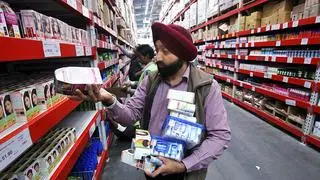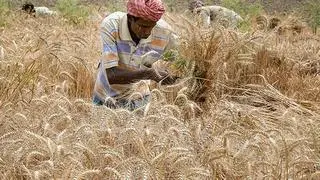“Fuel prices are not market driven,” according to West Bengal Finance Minister Amit Mitra. He said the Centre had increased the excise duty on oil nine times when crude oil prices were falling, thereby increasing its cost. In an interview to BusinessLine , on the sidelines of the 43rd annual general meeting of the US-India Business Council, Mitra said the GST is yet to stabilise. Excerpts:
What is your view on rising fuel prices? Will there be a cut in taxes on the commodity by the Centre or States?
When the Centre talks of market driven prices, it is completely false. The Centre increased fuel prices nine times in the middle of falling crude oil prices. If it was market driven, they would have lowered the price of fuel. On April 1, 2014, the excise duty on petrol was ₹9.20 and by October 2017, it had risen to ₹19.48. Excise duty on diesel was raised from ₹3.46 to ₹15.33. This had an impact on the people. The Centre has also not created a buffer that can be released to maintain prices. States did not increase their value-added tax or State tax even once, at least West Bengal did not. We have held on to taxes but the Centre kept increasing it.
One year down the line, has the GST stabilised?
GST should not have been launched from July 1, 2017. Those who are professionally trained knew very well that no pilot was done, no experimental control versus impact study was done. The GST Network was not prepared to process 300 crore of invoices every month. Small and medium enterprises became the victims, just like in demonetisation when the informal sector was impacted. Even now GST has not stabilised. GSTR-1 can be uploaded but it doesn’t self populate. There is no GSTR- 2. GSTR- 3B was introduced, which is not supported by any invoice. The result is huge paperwork and according to tax officers of some States, there is also tax evasion.
Will we see more rate cuts in the GST before the General Elections next year? What kind of a revenue impact do you see?
Any rate cut will have to be by a decision of the GST Council. On the revenue implication, in 2017-18, States fell short by over ₹43,000 crore, which the Central government had to compensate. I have heard, that in July and August, there was a shortfall of ₹13,000 crore. If it is so, it amounts to a ₹6,500-crore shortfall per month or over ₹90,000 crore shortfall for the full year. The projection of the GST Council was ₹55,000 crore. The Centre will have to pay the money. It is a mess which they have created.
What does dissolving the Telangana State Assembly imply ahead of the General Elections?
I am not authorised to speak on this but the key point is that there is a gelling happening amongst the top leaders of the Opposition across political parties that the current government needs to go.
There have been 12 elections in the last few months and the BJP has lost 11 of them. Congress and JD (S) swept the Karnataka municipal elections. Regional and national opposition parties are beginning to come together.
There is also a feeling that there is almost a neo-Emergency as so much of centralisation has happened. There is a feeling that it is not only an economic issue where the economy has faltered due to GST and demonetisation but it is also a political democracy issue.







Comments
Comments have to be in English, and in full sentences. They cannot be abusive or personal. Please abide by our community guidelines for posting your comments.
We have migrated to a new commenting platform. If you are already a registered user of TheHindu Businessline and logged in, you may continue to engage with our articles. If you do not have an account please register and login to post comments. Users can access their older comments by logging into their accounts on Vuukle.